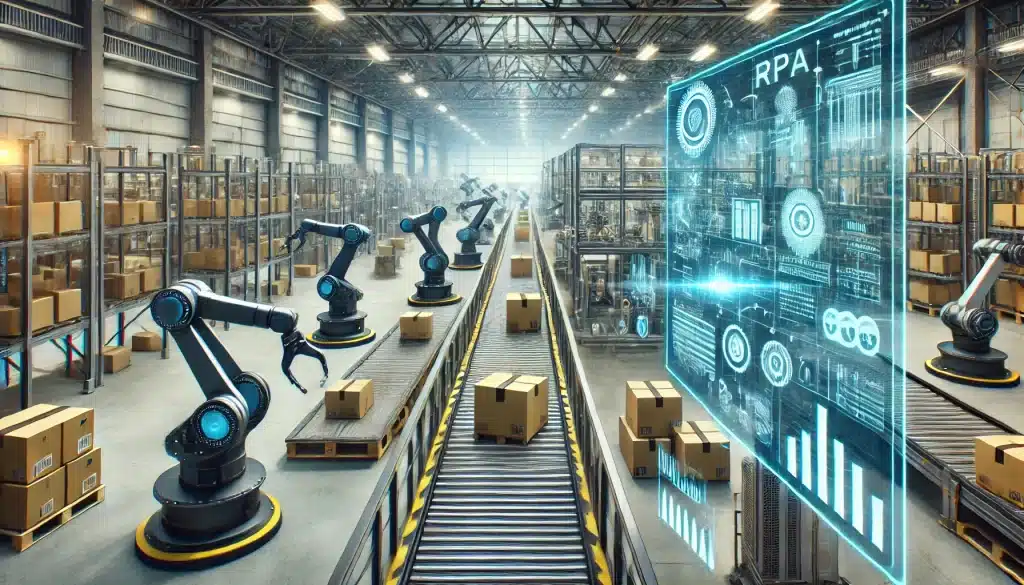Robotic Process Automation (RPA): Transforming Business Efficiency
Robotic Process Automation (RPA) has emerged as one of the most disruptive technologies for improving operational efficiency in businesses. By enabling the automation of repetitive and rule-based tasks, RPA is transforming the way organizations manage their daily processes, freeing up human resources for more strategic and higher-value tasks.

What is RPA?
RPA refers to the use of software, known as “robots” or “bots,” to automate routine tasks that traditionally require human intervention. These tasks can range from data entry and report generation to system integration and customer service. RPA bots can interact with applications and systems in the same way an employee would, following rules and executing tasks with high precision.
Benefits of Implementing RPA
Cost Reduction
By automating repetitive tasks, companies can significantly reduce the labor costs associated with them, as bots can work 24/7 without interruptions or errors, leading to greater efficiency and less need for human resources for low-value tasks.
Improved Accuracy
RPA bots are programmed to follow precise instructions, eliminating the risk of human errors that can occur in manual processes. This is especially beneficial in tasks that require high precision, such as data entry and account reconciliation.
Scalability
One of the key advantages of RPA is its ability to scale according to business needs. As a company grows, it can increase the number of bots to handle a larger workload without the need to expand its staff.
Regulatory Compliance
Bots can be programmed to comply with specific industry regulations, ensuring that processes are carried out in accordance with current regulations. This is crucial in highly regulated sectors such as banking, insurance, and healthcare.
Enhanced Customer Experience
By automating tasks such as responding to inquiries and managing accounts, companies can offer faster and more consistent service to their customers, improving their overall experience.
Use Cases for RPA
- Financial Services: Automating account reconciliation, payment processing, and regulatory compliance.
- Customer Service: Automated ticket management, responses to frequently asked questions, and request processing.
- Human Resources: Payroll automation, benefits management, and recruitment processes.
- Logistics and Supply Chain: Shipment tracking, inventory management, and order processing.
The Future of RPA
The future of RPA is promising, with advancements such as the integration of artificial intelligence (AI) and machine learning (ML) to create what is known as “intelligent RPA” or “Hyperautomation.” These technologies enable bots to handle more complex tasks that require decision-making and adaptability, opening up new opportunities for automation in areas such as data analytics, real-time decision-making, and personalized customer service.


